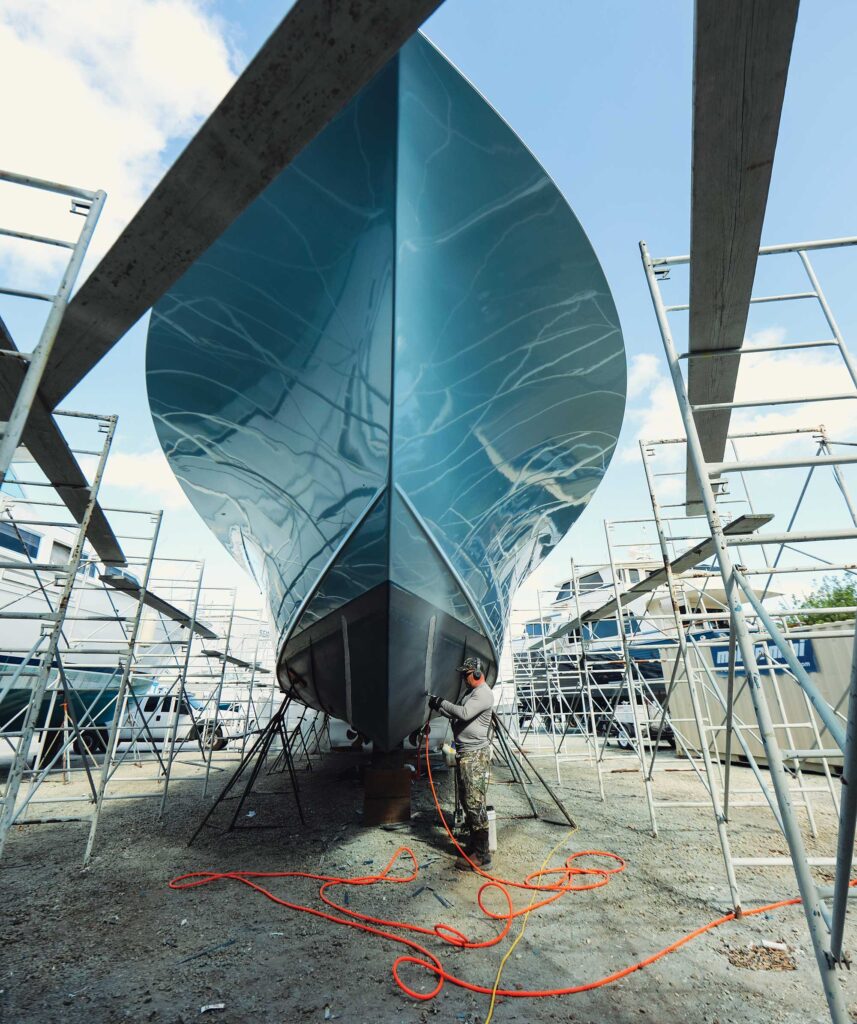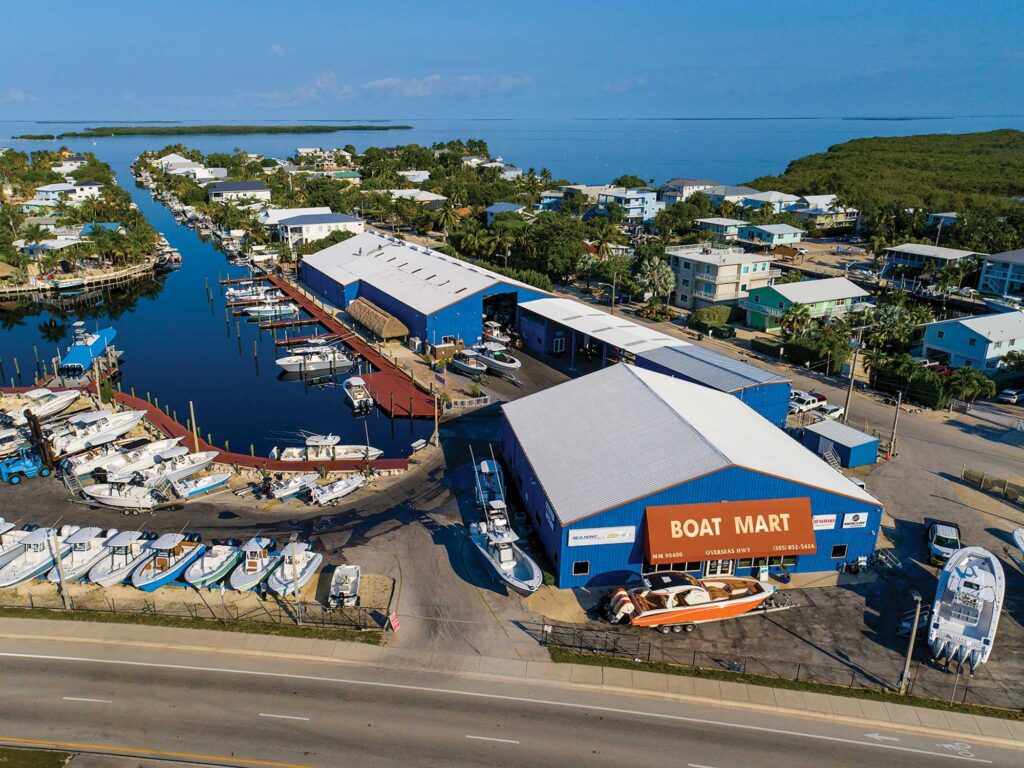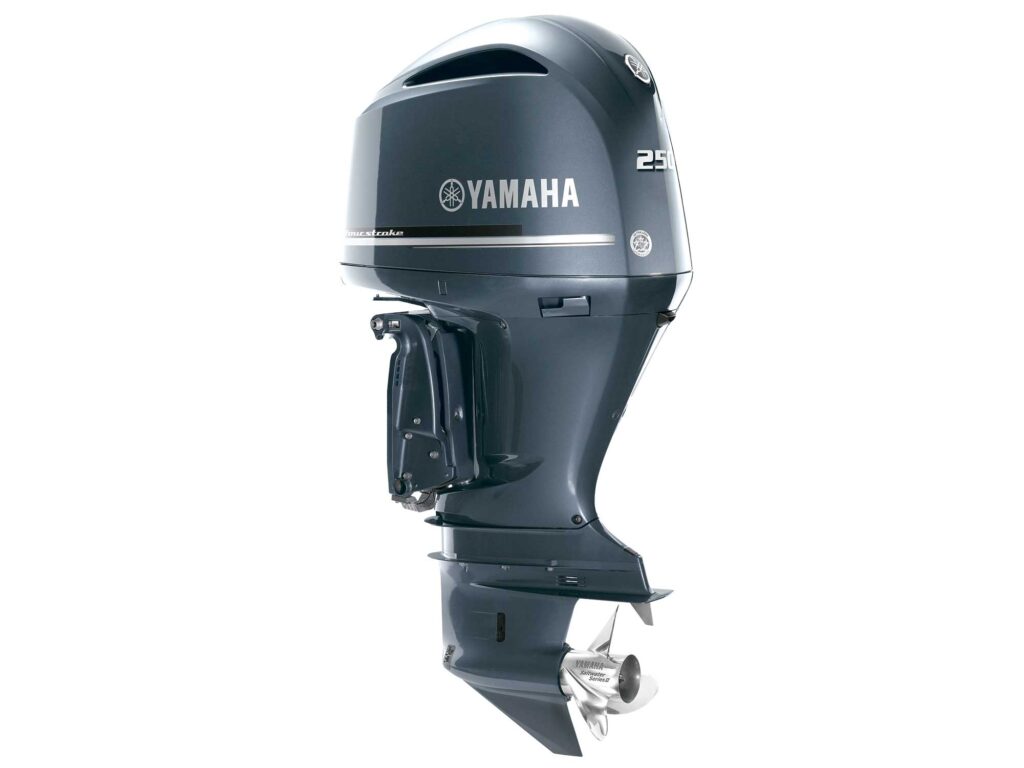New-Boat Financing Options
 Choosing the right financing option will have you enjoying your new boat for many years.
Stephen Dougherty
Choosing the right financing option will have you enjoying your new boat for many years.
Stephen Dougherty
Most fishing boats are financed in one of three ways: financing arranged through a boat dealer and/or manufacturer; a home-equity loan or line of credit arranged through a bank or credit union; or a specifically designed consumer boat loan arranged with a bank, credit union, or other lender that specializes in marine financing.
There are other ways of funding a boat purchase, but these three represent the financing methods available to a great many of Americans today when it comes to buying a new saltwater fishing boat.
Even with today’s tumultuous and often-unpredictable economic conditions, there are some general assumptions that a boat buyer can hold regarding boat financing.
For example, interest rates offered by lenders will generally be lower as the amount of the loan goes up. Similarly, shorter loan terms (the length of time required to pay it back) will usually provide lower interest rates.
Higher loan amounts, by and large, can be stretched over longer periods of time. Depending on the amount financed, boat loans can range from terms of four to 20 years. The amount of down payment you make (typically 10 to 20 percent), as well as your income and credit score, can affect the overall parameters of the financing package.
One key factor to keep in mind is the length of the loan term versus the expected life span of the boat and the accessories and equipment on the vessel that you might be financing as part of the overall purchase. While the service lives of today’s new saltwater fishing boats are rightfully measured in decades, the same thinking might not hold for a used boat.
You don’t want to put yourself in the position of potentially having to make payments on a boat (or other equipment that was folded into the loan amount) that gives up the ghost well before the end of loan term.
 A saltwater fishing boat represents a major investment in pursuing your passion. The right financing can turn this dream into reality.
Stephen Dougherty
Self-Funding
A saltwater fishing boat represents a major investment in pursuing your passion. The right financing can turn this dream into reality.
Stephen Dougherty
Self-Funding
Of course, not everyone needs to borrow money to buy a new boat. Maybe you’re the fortunate recipient of a trust fund or a hefty inheritance or sold your business to some deep-pocket capital venture outfit or struck it big in the crypto market. Or perhaps you won the lottery. As it turns out, in such fortunate events, you might be able to just plunk down a briefcase full of cash on a new fishing boat. But is this always a good idea? (Before you decide, make sure you’ve paid all of the taxes that Uncle Sam and others might want to collect on such windfalls because your net gain might shrink drastically versus the gross profit.)
Don’t rush to spend your savings. The decision on whether to pay cold, hard cash for your boat is more complicated than it might seem, according to John Haymond, senior vice president for Medallion Bank and president of the National Marine Lenders Association. “It really depends on your individual financial situation and the specifics of your boat purchase,” Haymond says.
“It’s never a bad idea to maintain cash in reserve, especially in volatile economic conditions,” he advises. “It could also be wise to put down less money and/or stretch out payments in the structuring of your financing, particularly as investment rates move higher.”
Consulting with a professional financial and/or tax adviser in these situations will help you reach a decision that makes good money sense for you.
Home EquitySome people choose to tap into the equity in their homes to fund a new-boat purchase. There can be advantages to this route, beginning with the fact that interest rates on these loans are often lower than nonsecured consumer loans.
Depending on the specifics of your situation, there could also be tax advantages for the interest paid on the loan. Again, it pays to consult a professional tax adviser on the best way to proceed when it comes to leveraging your house.
Home-equity loans can also be structured in a variety of ways, including some long-term options that allow you to stretch out repayment and/or afford a larger boat.
There are unique challenges and risks to going this route. As far as credit availability, you are subject not only to personal economic conditions, but also to regional real-estate-market conditions. It’s usually a more complex process because the lender will need to examine not only your income, but also your home’s market value and loan-to-value ratio. You might need to get a home appraisal done as well, and that will cost you extra money. Depending on the bank or lender, there can be closing costs attached to securing a home-equity loan, and you will be the one footing the bill for this extra cost.
A home-equity loan has other implications. It can increase by years the amount of time it takes you to pay off your house, and you need to understand this if your ultimate goal is to pay off your mortgages and hold title to your home free and clear some day. In addition, if some kind of catastrophe strikes—layoffs at work, for example—and you can no longer afford to make payments on your home-equity loan and go into default on the note, the bank can and will foreclose, and you will lose your house.
 Boat dealerships can be very helpful in arranging financing quickly and easily for your new-boat purchase through an affiliated lender.
Jason Stemple
Dealer Financing
Boat dealerships can be very helpful in arranging financing quickly and easily for your new-boat purchase through an affiliated lender.
Jason Stemple
Dealer Financing
Another common option is arranging financing through the boat dealer. They work with boat loans every day and are well-versed in the nuances of getting the deal done quickly and easily.
Dealers are also motivated to find a financing structure that works with your credit score, boat-buying budget, and available down payment. They want a customer who will be satisfied over the long run and rely on the dealer for years of service, fishing accessories, and other purchases.
Exploring financing options through your dealer is a good idea, but don’t make a decision until you explore what else is available in terms of boat loans.
Online LoansNew-boat buyers also have the option of hitting the World Wide Web to make their own financing arrangements. There are resources to help with this.
The National Marine Lenders Association is an organization of banks, loan-origination companies, finance companies, credit unions, and other industry professionals specializing in boat loans. While the NMLA’s primary purpose is to educate current and prospective lenders in marine financing procedures and promote marine lending within the industry, it can also be a valuable source of information for boat buyers.
“Many national and regional financial institutions are NMLA members,” Haymond says. Its member banks and finance companies emphasize marine lending and can offer consumers the benefit of their experience in setting up boat loans for people from all walks of life.
The NMLA website (marinelenders.org) is an excellent source of information and advice for those researching boat-loan options. The “For Boat Buyers” section of the site provides resources such as a Member’s Directory, Boat Loan Basics, Tax Deductibility information, a Loan Calculator and more.
Discover Boating also offers excellent funding guidance through its website at discoverboating.com/buying/boat-financing.
“There has been a shift over the past six to eight years for consumers to finance online with a bank or credit union,” Haymond says. “It is more convenient and efficient for consumers to shop multiple finance sources for marine loans from their home than the sometimes-limited options at a dealership.
“Today, people are accustomed to shopping online even for big-ticket items like boats and then to quickly flip over to marine finance sources to arrange financing in the comforts of their home,” Haymond adds.
There are many options to consider. However, boating anglers are a motivated and resourceful bunch who will typically find a way to pursue—and fund—their passion.
 Rising interest rates, higher boat prices and lack of inventory have led more people to hold on to their old boats and consider repowering to make their current boat new again.
Courtesy Yamaha
What About the Power?
Rising interest rates, higher boat prices and lack of inventory have led more people to hold on to their old boats and consider repowering to make their current boat new again.
Courtesy Yamaha
What About the Power?
Repower demand, especially for outboard dealers handling popular brands such as Mercury, Yamaha, Suzuki and Honda, is stronger than ever.
These engine companies, however, are also faced with production and supply-chain issues. “Loose motors” (a term used for new engines sold to the repower market) are especially hard to come by because motor manufacturers are working hard to supply OEM boatbuilder partners, who are working hard to catch up with their backlog of presold boats.
However, even in this environment, financing is available to fund the purchase of today’s high-powered outboard engines, which easily run from $40,000 to more than six figures, depending on the size and horsepower. Buyers can avail themselves of the same channels used to fund new-boat purchases. There are also specific repower financing programs offered by engine manufacturers through their authorized dealers. One example is Mercury Repower Financing, which offers financing programs for outboard, sterndrive and inboard repowers from $5,000 up to as much as $50,000.
The post New-Boat Financing Options appeared first on Salt Water Sportsman.
- Home
- About Us
- Write For Us / Submit Content
- Advertising And Affiliates
- Feeds And Syndication
- Contact Us
- Login
- Privacy
All Rights Reserved. Copyright , Central Coast Communications, Inc.